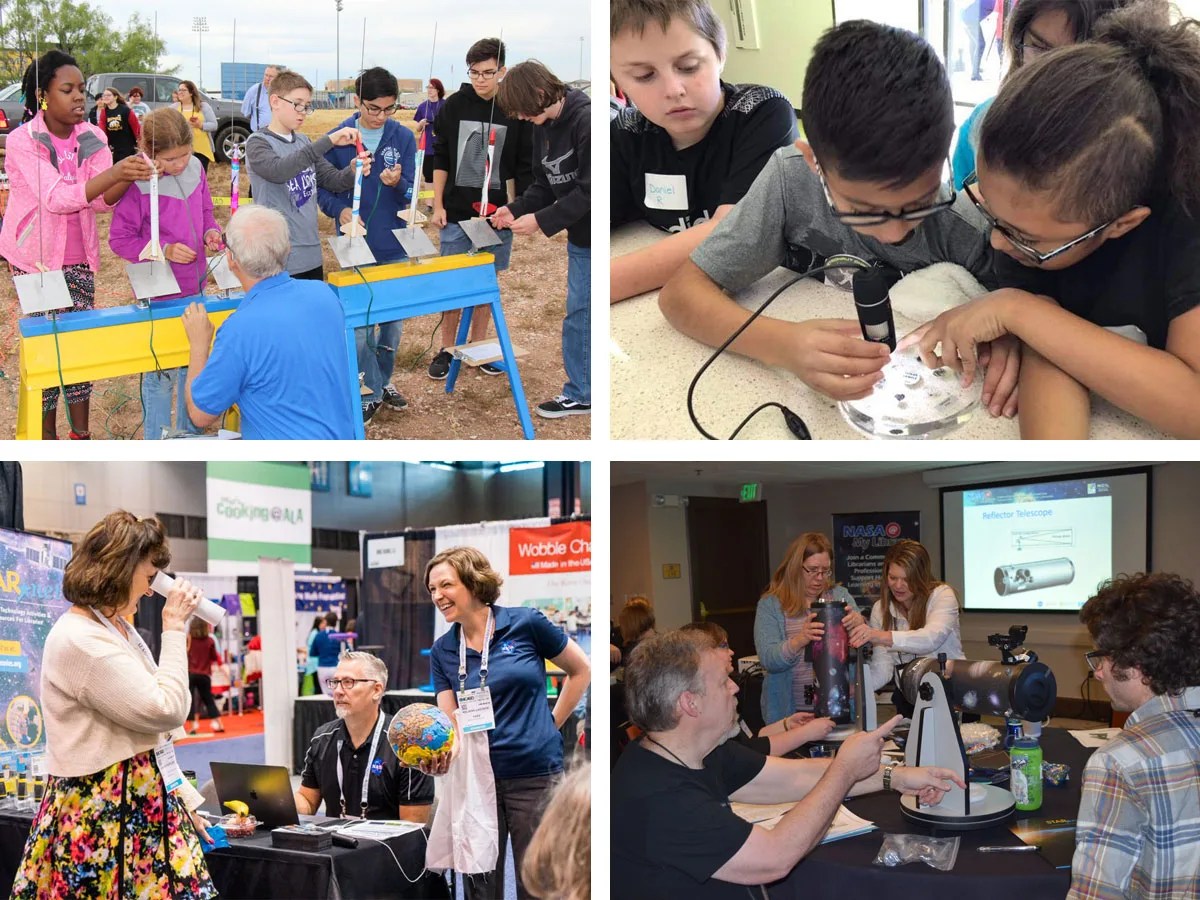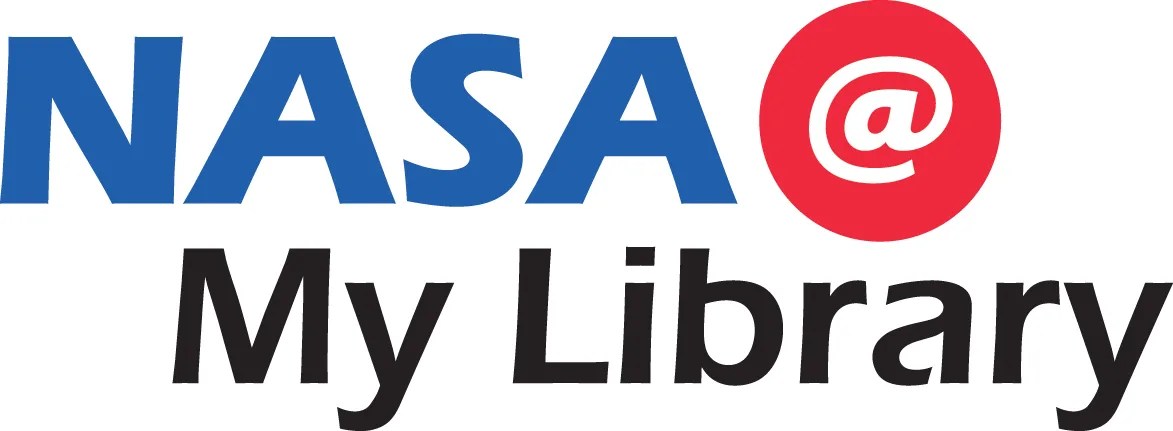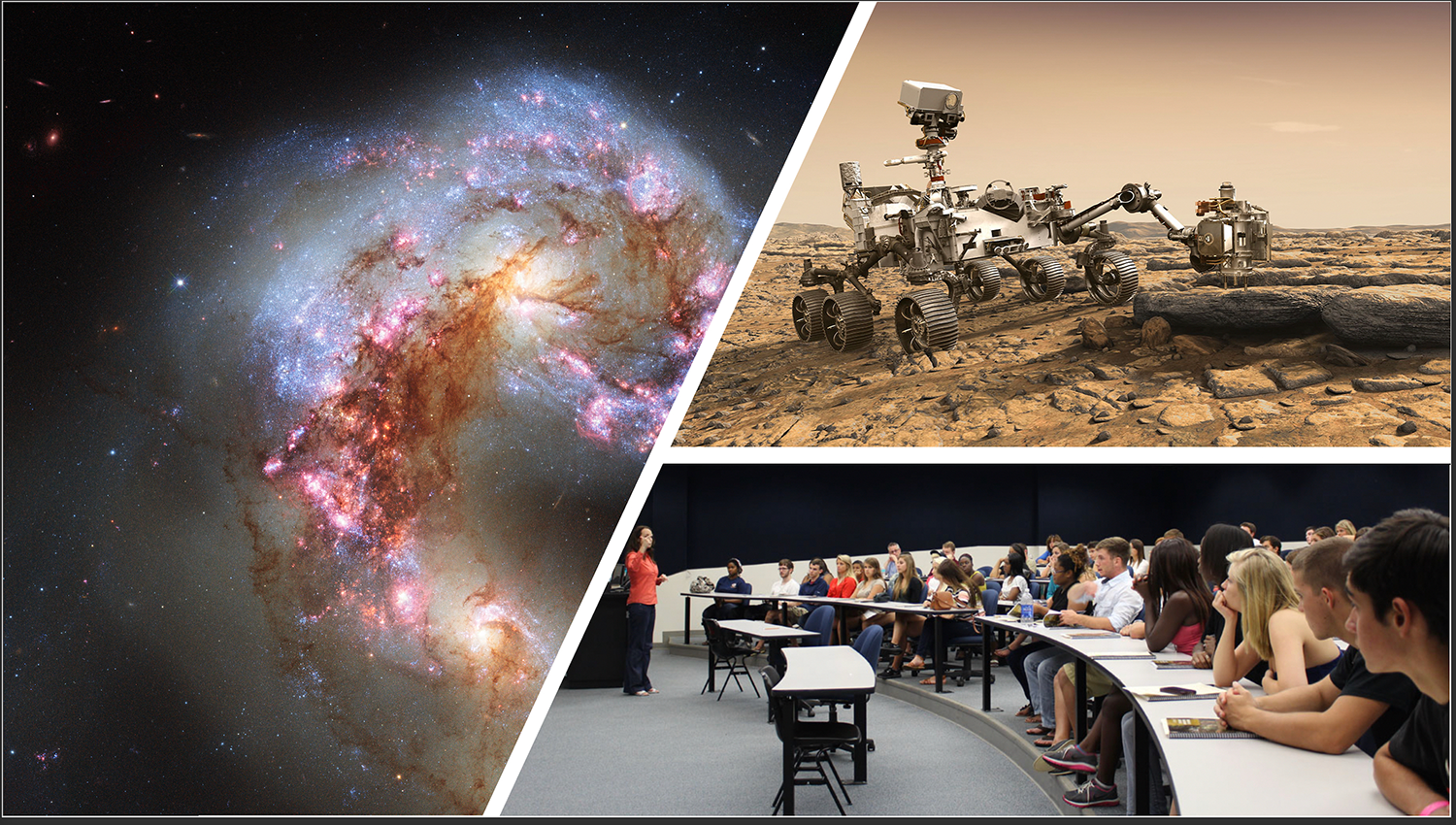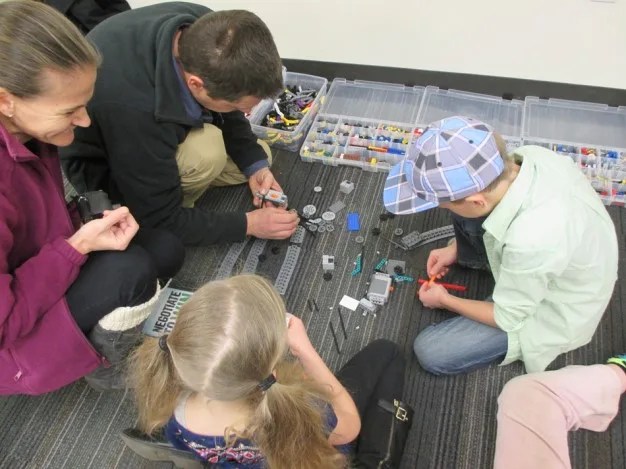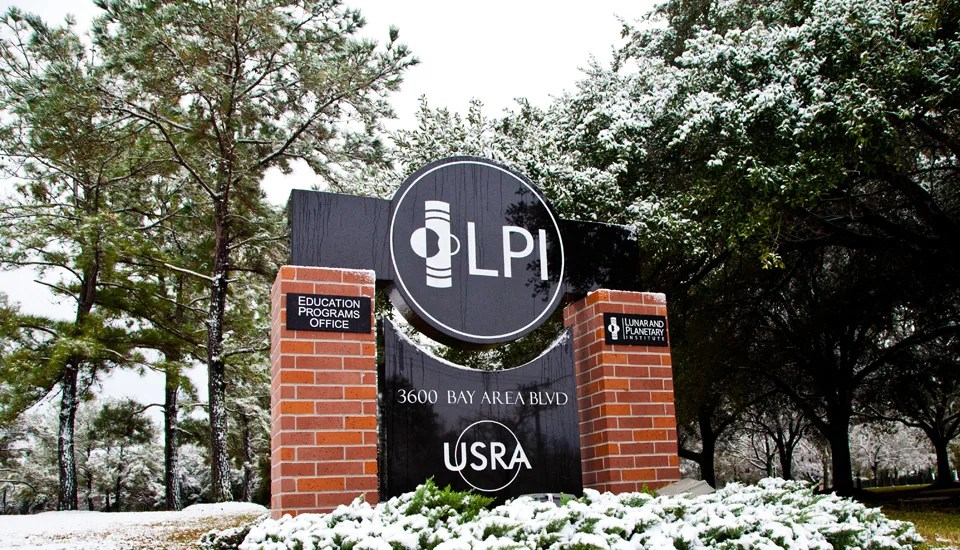NASA@ My Library
Increasing & enhancing STEM learning opportunities for millions of library patrons.
Earth Day Focus
We are Water Activity Collection
Team Mission
Through the NASA@ My Library project, NASA, public libraries, and state library agencies work together to increase and enhance STEM learning opportunities for millions of library patrons throughout the nation, including geographic areas and populations that are currently underserved in STEM education.
The Space Science Institute’s (SSI) National Center for Interactive Learning (NCIL), in partnership with the American Library Association, Cornerstones of Science, Lunar and Planetary Institute, and Education Development Center, leads the NASA@ My Library program. It leverages the STAR Library Network (STAR Net) to advance the NASA Science Mission Directorate (SMD) vision for education by engaging public audiences nationwide in informal and lifelong learning. STAR Net focuses on helping library professionals facilitate STEM learning for their patrons by providing “science-technology activities and resources” (STAR) and training to use those resources. The NASA@ My Library team engages key stakeholders (e.g., NASA subject matter experts (SMEs), public library partners, and state library partners) centered around high-profile NASA, Earth, celestial, and library events (e.g., 2017 solar eclipse, Earth Day, summer learning events at libraries). Key activities include stakeholder engagement, resource and experience development, professional development, a patron interest development research project, and a comprehensive project evaluation effort.
[We were] incredibly successful in reaching our underrepresented audience because we reduced access barriers like transportation and funding. We took the entire program, consumables and all, to each location. We were able to reach hundreds of kids.

Library Partner
What does your team hope to achieve?
The goals of the NASA@ My Library project are:
- Stakeholder Engagement: NASA@ My Library program stakeholders (including public and state library staff, the NASA Earth and space science education community, SMEs, and informal science educators) will increase the quality and quantity of library collaborations used to implement an effective NASA STEM program.
- Resource and Experience Development: Through the NASA@ My Library project and its series of NASA-themed STEM kits, public library patrons (especially youth and lifelong learners in rural and other underserved communities) experience increased and sustained access to exciting SMD-focused STEM learning opportunities that result in patrons becoming more interested in, knowledgeable about, and engaged in Earth and space science and engineering.
- Professional Development: The NASA@ My Library team will increase the capacity of library and state library agency staff to utilize collaborations and SMD assets to provide authentic, accessible SMD-focused learning experiences.
Overall, NASA Subject Matter Experts have proven most valuable. We have formed a continuing partnership with one local Solar System Ambassador in particular... His efforts encapsulate what we try to achieve with NASA@ My Library.

Library Partner
Project Web Site
https://www.starnetlibraries.org/about/our-projects/nasa-at-my-library/
Publications
LaConte K., Mitchell B., Shupla C., Liston C. & Fitzhugh G., (2021). Lessons Learned from NASA STEM Workshops for High-Impact Professional Development, Public Library Quarterly, DOI: 10.1080/01616846.2021.1875805
Mitchell B., Ratcliffe C., and LaConte K., (2020). STEAM Learning in Public Libraries: A ‘Guide on the Side’ Approach for Inclusive Learning.”Children and Libraries, vol. 18, no. 3, pp. 7–10., doi:https://doi.org/10.5860/cal.18.3.7.
LaConte, K., Mitchell, B., Fitzhugh, G., & Liston, C. (2019), Online Learning through the STAR Library Network: Resources, Networking, and Applied Practice in STEM Program Facilitation. International Journal of Innovations in Online Education, vol. 2. Danbury, CT: Begell House Inc. 10.1615/IntJInnovOnlineEdu.2019029592.





























